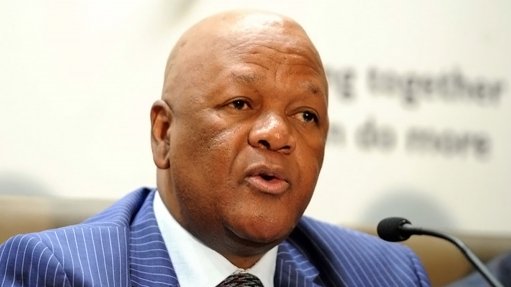
Jeff Radebe
Cabinet approved the five-year Medium-Term Strategic Framework (MTSF) of government on Wednesday, which would serve as the “building block towards the 2030 vision in the National Development Plan (NDP)”.
The MTSF, which covers the period 2014 to 2019, reportedly contained detailed implementation plans for the NDP, including targets, indicators, roles and responsibilities and implementation timeframes.
It comprised 14 outcomes, two more than the 12 outcomes prioritised during the fourth administration. Broadly these outcomes focused on quality basic education, a long life for all South Africans, safety and security, inclusive growth and decent employment, rural development and land reform, social protection and social cohesion and nation building.
“These 14 outcomes cover all the chapters of the NDP,” Cabinet said in a statement released on Thursday.
Minister of Planning, Monitoring and Evaluation in The Presidency Jeff Radebe would hold a briefing session soon to unveil the framework, which had been designed to enable “systematic and evidence-based monitoring of the implementation of the NDP”.
In his Budget Vote address delivered in Parliament, Deputy President Cyril Ramaphosa, who has been given overall responsibility for the NDP, indicated that he would be working with Radebe to monitor the implementation of the plan.
“We will ensure that departmental strategic plans and annual performance plans are aligned with the MTSF and the NDP,” Ramaphosa reported, adding that government would continue to engage various sectors of society to detail the contribution they can make to the implementation of the NDP.
A key target constituency would be business, a sector that had raised questions about government commitment to implementing the plan, which had not been fully endorsed by the tripartite alliance of the African National Congress, the Congress of South Africa Trade Unions and the South African Communist Party.
Ramaphosa said he had already met the CEOs of South Africa’s major banks, who committed to develop “concrete implementation plans that include funding options for our infrastructure programme”.
“Perhaps this is the time to call for an end to the so-called investment strike and I am confident that the private sector will respond favourably when we meet them at the Presidential Big Business Working Group.”
The Presidential Big Business Working Group comprised chairpersons and CEOs from major companies, as well as key economic sector Ministers.
In his June 17 State of the Nation Address President Jacob Zuma said achieving a 5% growth rate by the year 2019 was a key priority. He and his Ministers planned to work with business to stimulate infrastructure development, energy investment, as well as a recovery in manufacturing and mining.